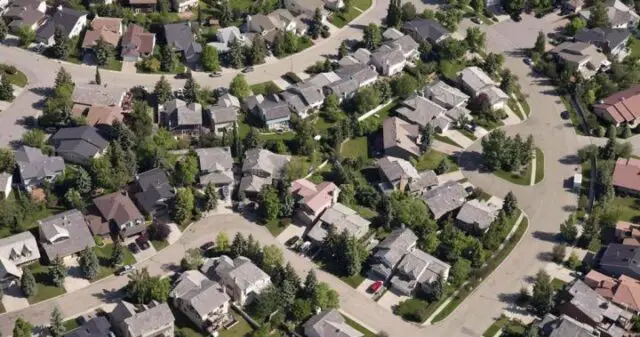[ad_1]
Ottawa’s newest budget is getting mixed reviews across Alberta, with many questioning how the proposed reforms will actually solve the country’s housing crisis.
On Tuesday, the federal Liberal government delivered its 2024 budget with promises to help young Canadians. The proposed $57-billion budget comes amid a stronger-than-expected economy and new taxes targeted at the wealthiest Canadians.
A lot of the new spending was announced well before the budget was tabled on Tuesday, including a Canadian Renters’ Bill of Rights. Prime Minister Justin Trudeau said in March that the proposed legislation will reform the rental market, including amending the Canadian Mortgage Charter to allow tenants to count on-time rent payments toward their credit score, and proposing $15 million in new funding to provincial legal aid organizations to protect tenants against unfair rent payments.
The 2024 federal budget also promises to make buying a home more accessible for Canadians while also increasing the housing supply. The 2024 budget promises to build 3.87 million new homes by 2031 — two million more than the current expected pace — with a slew of measures and funding to scale up the pace of new home construction.
“We are acting today to ensure fairness for every generation,” Finance Minister and Deputy Prime Minister Chrystia Freeland said in the House of Commons Tuesday as she tabled the Liberals’ 2024 budget.
“We are moving with purpose to help build more homes faster. We are making life cost less. We are driving the kind of economic growth that will ensure every generation of Canadians can reach their full potential.”
Alberta’s Finance Minister Nate Horner responded to the budget by saying that the federal government “poured gasoline on the inflation crisis in Canada” by overspending, overtaxing and over-regulating Canadians.
Horner said the “excessive” spending is fuelling inflation and will harm young Canadians by increasing their debt and deficits.
“This federal government has failed to take decisive action on critical issues, like Canada’s alarmingly slow economic growth and the economic pressures Canadians are experiencing,” Horner said at a news conference on Tuesday.
“This budget is another missed opportunity to any of these problems.”
Horner also said tax increases and red tape will increase costs and further add to the affordability crisis. He pointed to the proposed housing reforms, saying the regulations tied to federal housing funding will make it difficult to increase housing supply in Alberta.
“We are seeing increasing intrusion into areas of provincial jurisdiction with red tape and strings attached to any kind of funding,” he said.

However, Premier Danielle Smith told Shaye Ganam on QR Calgary Tuesday morning that she is meeting with federal Housing Minister Sean Fraser to discuss the Housing Accelerator Fund.
Alberta NDP leader Rachel Notley said in an emailed statement on Tuesday that the federal government must deliver on its housing and affordability promises at a time when many Albertans are facing an affordability crisis.
Breaking news from Canada and around the world
sent to your email, as it happens.
“At a time when Albertans need all governments, regardless of political stripe or jurisdiction, to have their backs, today’s federal budget must deliver on the housing and affordability needs of Albertans,” her statement read.
“Ensuring Albertans can access the first steps of a national pharmacare program, covering diabetes and contraception, is vital to help them afford the medications they need.
“Rapidly building affordable, accessible housing is crucial to ensuring everyone in our province has a roof over their head.
“And critically, investments to our province of their own tax dollars must flow without intervention from the province’s Gatekeeper-in-Chief. The Premier should be seizing the opportunities to invest in Alberta instead of standing in the way of these important investments.”
Calgary, Edmonton mayors respond
Edmonton Mayor Amarjeet Sohi said in a social media post Monday that the 2024 federal budget reflects the priorities that Edmontonians have asked the city to focus on. Sohi said this includes funding for public safety, housing support and economic development.
In a letter to federal Finance Minister Chrystia Freeland in January, Sohi requested $300 million in capital investment and $25 million in annual operating funding to support Indigenous-led housing. He also requested an immediate $54 million in federal funding to develop 207 new “shovel-ready” affordable housing units, most of which would support people with complex mental health and addictions challenges.
Sohi also requested $200 million over four years to “leverage private investments in residential development” and conversions of under-utilized office spaces in downtown Edmonton. He also requested $358.4 million in capital funding to support the redevelopment of downtown Edmonton.
“The City of Edmonton’s 2024 federal budget submission reflects the priorities that Edmontonians have asked us, as their elected representatives, to focus on: public safety, housing support, and economic development,” Sohi’s social media post read.
“I am hopeful the federal budget can provide resources to support Edmonton’s growing population, and these resources can flow to Edmonton without undue delay.”
Calgary Mayor Jyoti Gondek told reporters on Tuesday that the budget seems to be focused on housing and the federal government is seemingly investing in infrastructure that is needed to grow existing communities.
However, she is disappointed that there is no mention of a permanent solution to how the federal government funds municipalities, which was a big ask from Calgary.
“I would really like to see some sort (of) process where provinces and municipalities can be engaged with the federal government to find a permanent funding solution,” Gondek said.
The Calgary mayor said she is pleased that the federal government is unlocking five federal parcels of land to be leased to housing providers. That includes Currie, a southwest community in Calgary, and an estimated 100 homes will be built in that area.
“Any units that we can get built will be beneficial for Calgarians,” she said.
“My concern is that while we are focused on the 60 people that are moving here every day and making sure we have enough housing for all of them, there are people here who are struggling with affordability and housing. We need to make sure this federal government is focused on everyone.”
Canadian Taxpayers Federation slams almost $40M deficit
Kris Sims, Alberta director for the Canadian Taxpayer’s Federation (CTF), slammed the Trudeau government’s budget for hiking taxes and increasing spending. Sims told Sarah Crosbie on QR Calgary Monday afternoon that debt interest charges will soar as a result of the budget. According to a news release from the CTF, debt interest charges will cost taxpayers $54 billion in 2024.
The organization also criticized the federal government’s predicted $39.8-billion deficit.
“It’s frankly a dumpster fire,” Sims said.
“We are now paying more than $1 billion per week on the interest charges on the debt. Put more plainly, we’re now spending more on our interest charges on our debt than we are on health care in Canada.
“They have no plan to balance the budget. Not this year, not next year, not the year after that … So this is why we are just pulling our hair out, because they have no fiscal discipline, and we can all sit here and point fingers at them and say they’re being really terrible with our money.”
Sims also said the 2024 federal budget will not solve the housing affordability crisis in Canada because the Liberal government raised interest rates. She said she wants the Trudeau government to lower taxes which will increase building supply and lower housing prices.
“Prime Minister Justin Trudeau’s government has printed about $300 billion out of thin air. That is what causes inflation. When we have inflation going up to this level, that is, we see the interest rate go up. So that is one of the fundamental reasons why housing is out of reach,” Sims said.
“We are no closer to having an affordable home in Canada, and I want to afford homes, too. Everybody should.”
Sims added he doesn’t know if Ottawa’s proposed changes to its capital gains taxes will be productive.
The federal government proposed changes to capital gains taxes in Budget 2024, which could see the wealthiest Canadians pay up a bigger share of their returns.
Under the proposal, annual gains realized above $250,000 for individuals would be taxed at a rate of two-thirds, up from the current 50 per cent. Any gains under that bar would continue to be taxed at the 50 per cent rate.
“We don’t have enough of them to fund our federal budget … Even if we did, the parliamentary budget officer did the math back in 2021 and based on the wealth tax they were floating back then but didn’t do, the Trudeau government would spend the money they take in a month,” Sims said.
“This is where we’re saying there aren’t enough super uber duper richie rich people out there to keep up with this kind of spending. It’s always going to trickle down and nail the rest of us.”
— with files from Craig Lord, Global News.
[ad_2]
Source link




















